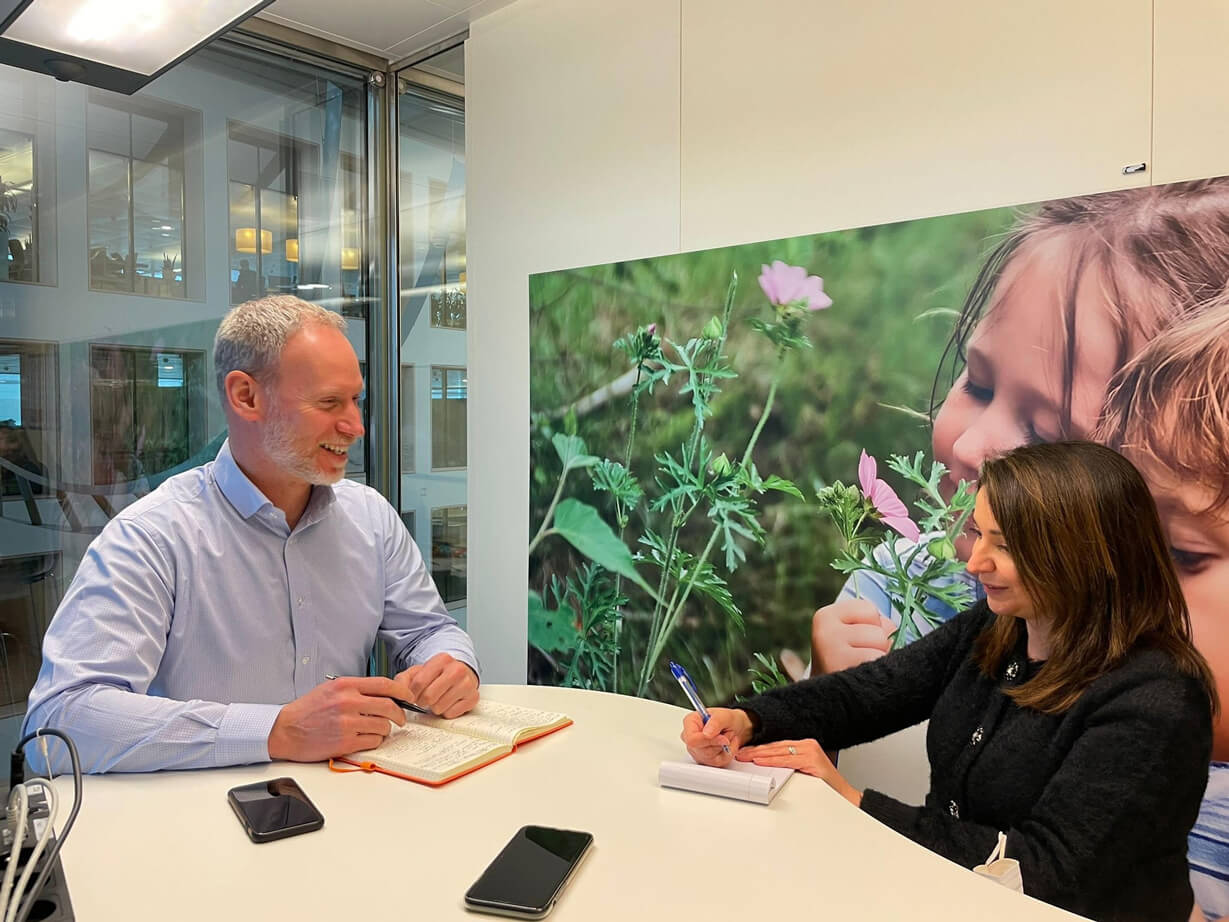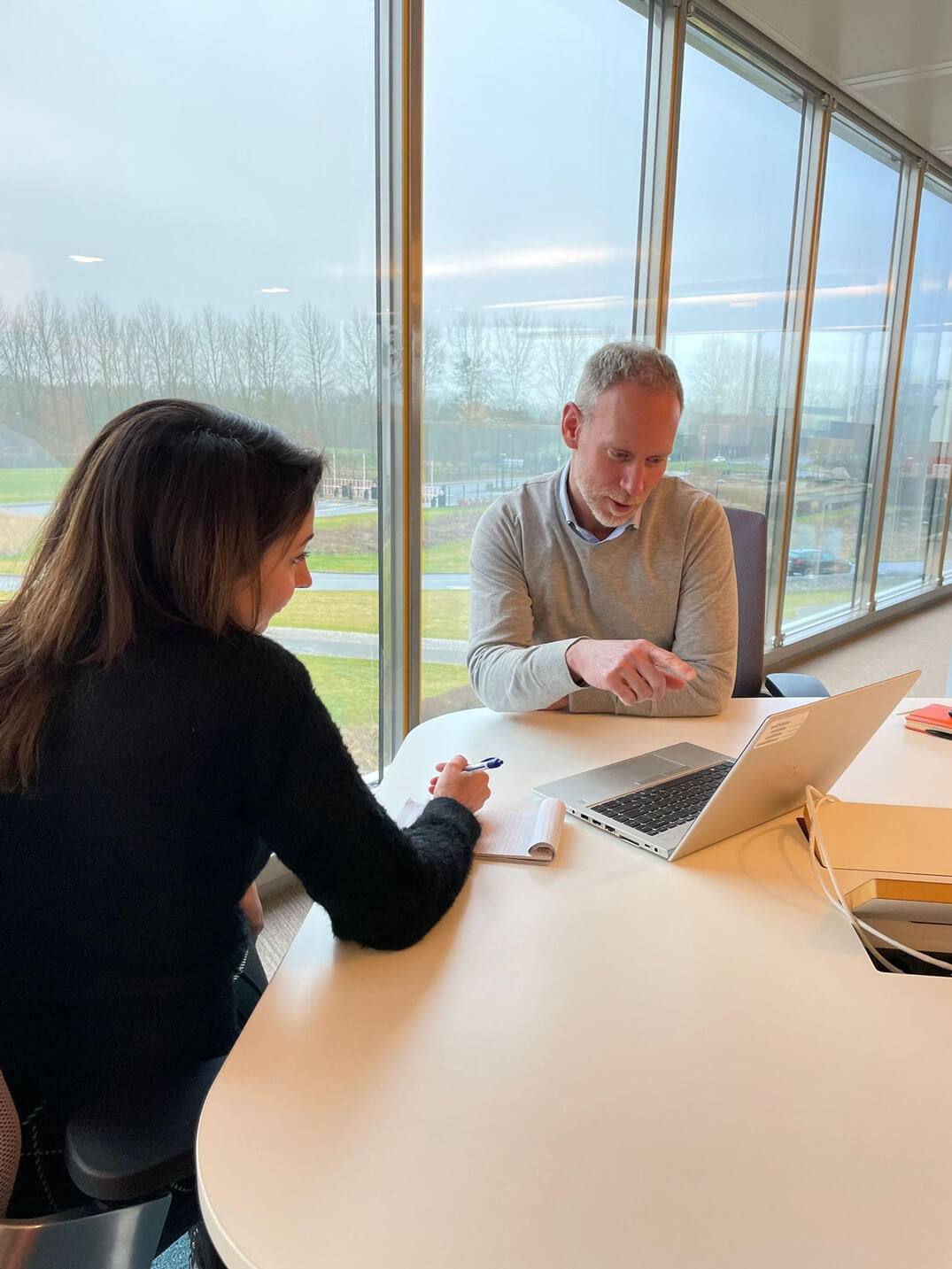#TeamVaccines
Rene’s Story
Vaccines Innovation & COVID-19 Communications
I’m Rene, and I work in the field of vaccine innovation & COVID-19 communications.
When I was younger, I remember meeting a man who had suffered paralysis, caused by an infection with the polio virus - something we rarely encounter today thanks to widespread vaccine use. He was a former athlete and could now barely walk, and seeing the suffering caused by a vaccine-preventable disease sparked my lifelong interest in life sciences and the power of vaccines.
Most recently, we’ve seen the power of science and the impact of vaccines in action with the global response to COVID-19. In that context, COVID-19 not only changed the world for us, it also revolutionized many areas of science and technology.


What have we learned from the COVID-19 pandemic?
The COVID-19 pandemic is now considered one of the 7 most deadly plagues in human history, and has already claimed over 6 million lives globally. But unlike many of the previous pandemics, it struck at a time when we had a better scientific understanding of infectious diseases than ever before, and - in many countries - strong healthcare systems and primary care facilities.
It’s inspiring to see the biopharmaceutical industry and scientific community pull together, during the first global public health crisis in living memory, to uncover scientific insights at a very fast pace and develop vaccines that effectively protect against COVID-19, prevent serious disease, hospitalizations and death. In light of a global health crisis like COVID-19, the scientific collaboration between large companies and biotechs, along with global partnerships with academia and public health organizations, helped us all to collectively better understand the virus and come up with solutions to protect people against it.
What’s next for COVID-19 vaccines?
Scientists across the world are constantly working to better understand the COVID-19 virus and how it changes. This helps us to develop new solutions and improve existing solutions like therapeutics and vaccines. These scientific insights also help us to adjust the vaccines to be better prepared for emerging virus variants, and the likely next stage of the COVID-19 crisis: the transition to an endemic disease.
Some of the current COVID-19 vaccines also pose logistical challenges in countries which lack cold transport and storage infrastructure, so scientists are working to develop vaccines that can be stored at fridge temperatures and solutions to enable easier transport, storage and administration of the vaccines.
A very exciting advancement is the research into the next generation of vaccines; multi-valent vaccines that could protect against different variants of COVID-19, including ones which have yet to emerge. These could even enable us to create combination vaccines that address different diseases such as flu and COVID-19. Another direction of research is into so-called ‘universal vaccines’ that are intended to protect against the most threatening coronaviruses, including SARS, MERS and COVID-19.
What challenges does the future hold for vaccines?
This is a really exciting time for vaccines, science and innovation. Our knowledge of both the human body and pathogens has never been greater. In addition, scientific teams and researchers all over the world with outstanding knowledge of genetics and genomics are changing how we’ll develop vaccines in the future. So I hope we’ll be able to overcome challenges which have previously held us back in our fight against certain diseases, and prepare us to defend against future pandemics.
For me, it was very emotional to see my COVID-19 vaccination being recorded in my vaccination booklet, right underneath the entry for the vaccination I was given to prevent smallpox in the 1970’s. We have successfully eradicated smallpox thanks to the amazing impact of vaccines. We are also close to eradicating polio. And I hope we will be able to eradicate many more diseases through the use of vaccines in the future.
We can only truly realise the full potential of vaccines if people around the world, wherever they live, can access them, and also understand the benefits they offer for them personally and for the societies they live in. This is why I believe it is crucial for people to learn about how vaccines are being developed, tested and manufactured, and how experts investigate them to ensure they can benefit people around the world. That’s why I have a strong passion for helping people to understand vaccines and the science behind them, so that they see vaccines as the important scientific health tool that they are.
COVID-19 has demonstrated that vaccines can help save lives and protect our healthcare systems, but it has also demonstrated that many people have questions about vaccines. I think it’s important that people ask these questions, and also get the answers they need, to fully appreciate the power vaccines have. It’s up to us scientists and medical professionals to help people understand how vaccines work, and use science and data to show the real benefits of vaccines for helping to protect us and the communities we live in. I’d like to see a world where we continue to create new breakthrough vaccines that have benefits we never thought possible, and where people can better understand vaccine technology and its impacts. So that more people see these benefits and can be protected against preventable diseases in the future.
Read next story